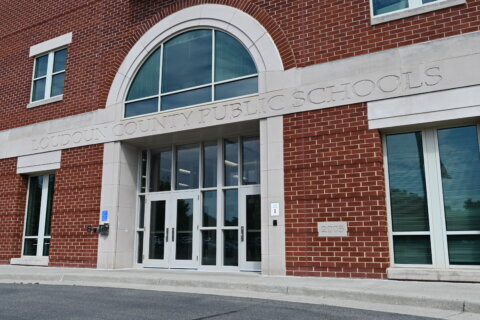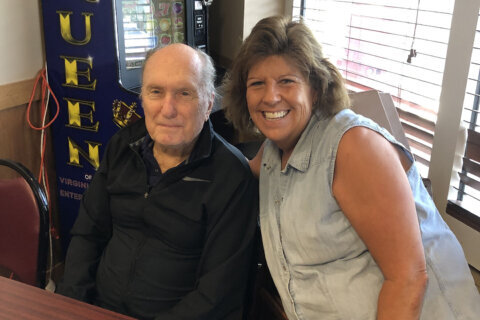The Loudoun County School Board said Virginia Attorney General Jason Miyares is making an unconstitutional attempt to exclude the public from a hearing Monday over a lawsuit to halt further actions by a special grand jury.
Miyares convened the special grand jury to look into how the school system handled two sexual assaults by the same high school student last year.
As WTOP first reported, Miyares filed a motion Tuesday saying opening the hearing to the public would damage the normally secret criminal investigatory process of the grand jury, claiming that “since the 17th century, grand jury proceedings have been closed to the public.”
However, in a new motion filed Friday, the school board said none of its suit would “disclose any matters that are covered by grand jury secrecy provisions.”
The school board suit said Miyares is using the special grand jury in an unconstitutional and unlawful way.
“The grand jury subpoenas filed in this proceeding as exhibits are not subject to any requirement of secrecy. Indeed, recipients of such subpoenas are free to disclose them to anyone they please,” wrote school board attorney Steven Webster.
Generally, a person who is subpoenaed to testify before the grand jury is not precluded from immediately publicly disclosing the questions they were asked behind closed doors.
The School Board is seeking a temporary injunction to prohibit further action by the special grand jury. In its lawsuit, the board said an executive order issued by Gov. Glenn Youngkin on his first day in office went beyond his legal power, and that the special grand jury — selected by Miyares — is being used unlawfully.
If the circuit court judge decides to keep the hearing open to the public, Miyares, in his June 5 motion, said his office would still be obligated to maintain secrecy, which would “substantially prejudice” his ability to raise many arguments. That could prompt a scenario in which the judge would be required to repeatedly open and close the hearing, Miyares argued.
Yet, in its motion on Friday, the school board said Miyares’ “sweeping view of grand jury secrecy” isn’t covered by Virginia’s secrecy requirement and violates the First Amendment.
“Civil hearings are routinely open to members of the press and the public and that openness plays a ‘significant and positive role’ in the functioning of the courts and in public confidence in the judicial system,” wrote Webster, citing previous appeals court rulings.
“Public access serves to promote trustworthiness of the judicial process, to curb judicial abuses, and to provide the public with a more complete understanding of the judicial system, including a better perception of fairness.”
With the school board’s filing posted on Friday, it’s unlikely a judge will rule over the weekend. The judge would likely address the matter of whether or not to close the hearing, when it’s scheduled to begin, at 10 a.m. on Monday.
Mirayes’ office did not immediately respond to a request for comment.








